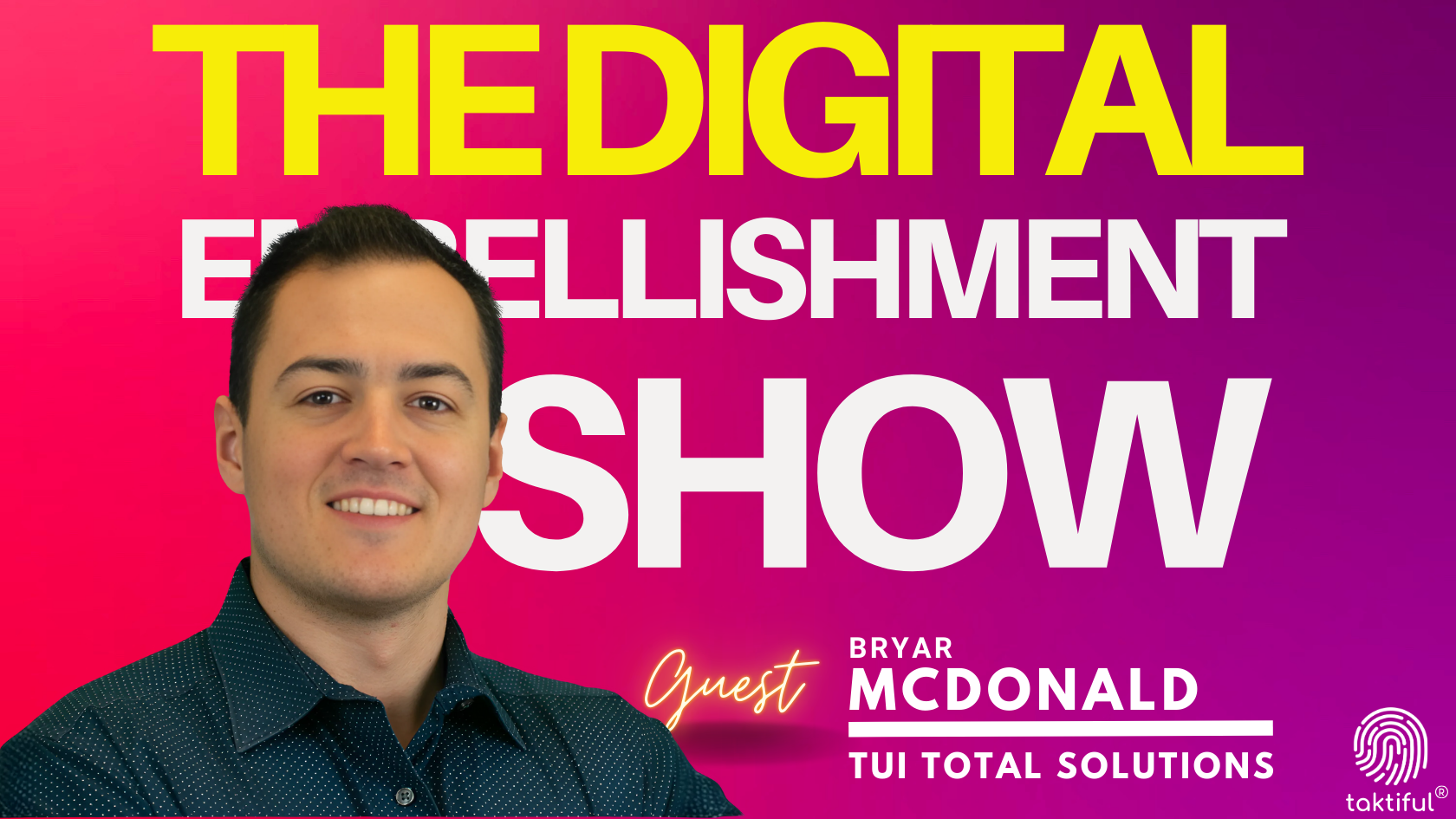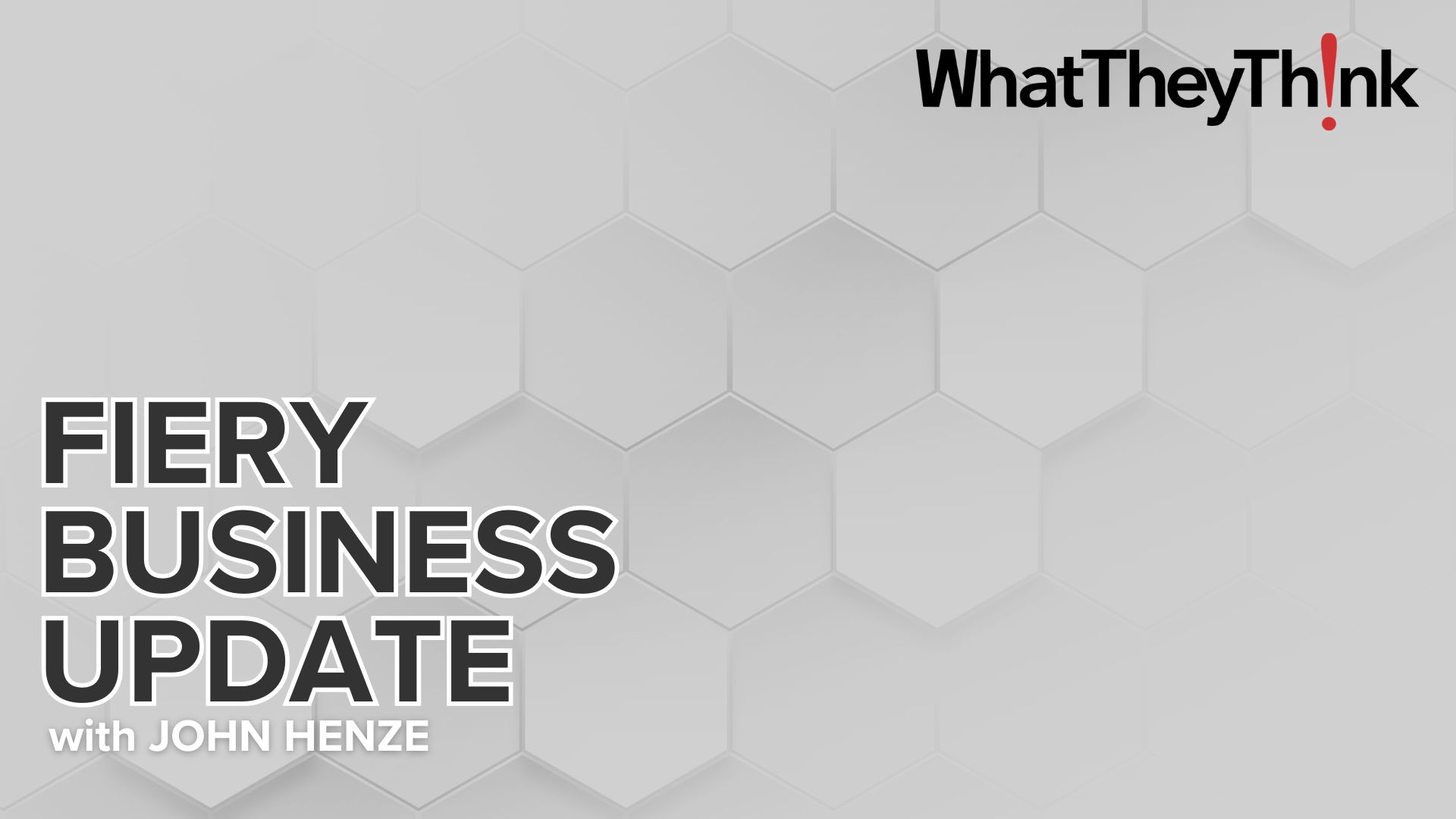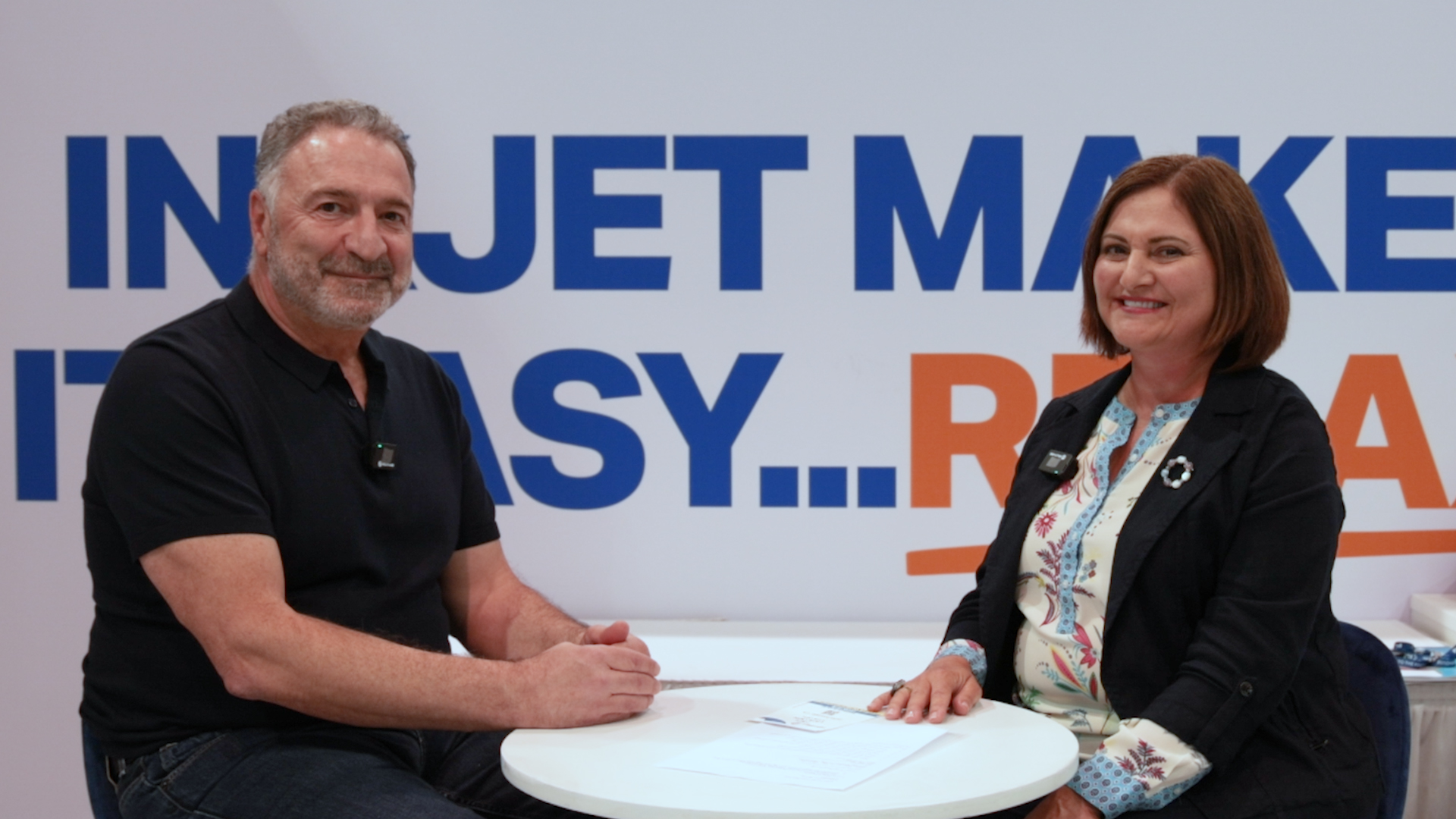By John O'Rourke
I recently read an interview on WhatTheyThink.com with Tom O'Connor, Jr., the CEO of Mohawk Paper, where he said, "It's okay to make green being green." That struck home for me. Presstek has always brought to market solutions that are kind to the environment, primarily through the elimination of chemistry used in platemaking. However, the environmental benefits of our products extend beyond that. It has only been recently that the business world has started to recognize that being green is not only responsible, but it can be profitable. In the past, I think people generally assumed that being green cost green. While they like the idea of being more environmentally conscientious, they also thought it might not be affordable for them in many cases.
Not so, and I was glad to read Mr. O'Connor's comment!
Going Green is Good Business
 At Presstek, we truly do believe that going green is good business. While the basic advantages of chemistry-free platemaking, first brought to market by Presstek more than 15 years ago, are pretty obvious, some of the environmental advantages of the DI press may not be so obvious.
At Presstek, we truly do believe that going green is good business. While the basic advantages of chemistry-free platemaking, first brought to market by Presstek more than 15 years ago, are pretty obvious, some of the environmental advantages of the DI press may not be so obvious.
First, of course, the DI press incorporates Presstek's on-board chemistry-free platemaking, so it has the benefit of eliminating the need to purchase, store, use, and dispose of platemaking chemistry and provides relief when complying with environmental regulations.
But beyond that, there are a number of other environmental considerations. DI presses greatly reduce volatile organic compounds (VOCs). VOC emissions have been linked to the breakdown of the earth's ozone layer, contributing to global warming. Since DI presses offer waterless printing, they eliminate one primary source of a printer's VOC output--alcohol-based fountain solutions. Combined with the chemistry-free platemaking and automated ink cleaning functions, VOC output is reduced by up to 90 percent.
DI presses can reduce VOC a printer's emissions by up to 90 percent.
DI presses also conserve water. The conventional offset printing process requires water for plate processing and for the dampening system, and the DI's waterless operation eliminates this source of wastewater. Water conservation is critical. The August 2006 United Nation Water Thematic Issues report, Coping with the Scarcity of Water, speaks to the importance of maintaining and preserving our water supply and projects that 1.8 billion people will be living in countries or regions with absolute water scarcity by 2025 if world water use continues at its current rate.
The DI press also generates significantly less paper waste than conventional offset printing. By controlling major variables such as ink/water balance and sheet transfer, the DI press saves on both the makeready waste as well as paper waste that is generated during the print run on a conventional press – where color and registration consistency need to be managed. Not only does the DI reduce the amount of waste headed for the landfill, it also has an immediate and positive effect on the profitability of a printing company. DI owners often report that their paper waste is reduced by a factor of 10 or more after installing a DI press. When you consider that the cost of paper can account for 22 percent of a printer's sales revenue1, paper waste reduction underscores a considerable business benefit of going green with a DI press.
DI presses use less floor space than conventional offset, as well. With no separate platemaking required and a compact footprint, Presstek DI presses use 50% less floor space compared to a conventional four-color press with its associated platemaker and processor, offering a more productive and efficient use of space.
Finally, the ability to produce cost-effective short runs of very high quality offset printing means that customers can print what they need when they need it rather than risking waste due to the obsolescence normally associated with long runs of materials that are printed and placed in inventory.
The Proof Is In the Results
Many Presstek DI customers are reaping the benefits of going green with their DI presses. Murray Print Shop, a third-generation family-owned business, is committed to producing print in an earth-friendly fashion. Located in St. Louis, the firm recently celebrated its 52nd year in business.
"My grandfather started the business in 1954," says Tim Alton. "With my nephew running our DI press, we are into our fourth generation of family in the business, and all of us place a significant focus on minimizing the impact of our business on the environment."
Alton and his family represent a growing movement within the printing industry to reduce the environmental impact of the conventional offset printing process. Working toward a carbon-neutral footprint is not only responsible and critical to the well-being of a fragile earth and its inhabitants, but it is also good business.
Murray Print Shop has more than tripled its business but its dumpster is emptied one-third as often as a result of recycling and efficient production.
Murray Print Shop has more than tripled its business over the last fifteen years, yet the company now has a smaller dumpster that is emptied only once a week, one-third as often as in 1990 as a result of recycling and efficient production processes. And waste was reduced even further when the company installed its Presstek 52DI press, which reduced makeready waste by a factor of ten.
Founded in 1974, Inkworks Press in Berkeley CA has a commitment to environmentally sustainable operations. Nearly 90% of Inkworks' projects come from non-profit organizations, many of which support and promote environmental causes. "What we purchase is geared to the kind of work we do for these clients," said Bernard Marszalek, Sales and Marketing Manager. "But we also have to gear up for what we expect our constituencies to need in the future."
Inkworks added a Presstek DI press to address increasing demand for four-color printing. "We wanted to ensure a chemistry-free printing operation with fast makeready to minimize paper waste," Marszalek explains. Inkworks extends the benefits of DI by printing with vegetable-based inks on recycled paper stocks.
Inkworks extends the benefits of DI by printing with vegetable-based inks on recycled paper stocks.
Inkworks takes pride in the fact that it can deliver added value and the impact of color for its customers with virtually no added cost due to the process efficiency and decreased cost of DI operation as compared to conventional offset printing.
Go Green and Be More Capable, Profitable and Competitive
Not only are print shops going green with DI presses, they are more easily able to meet changing customer requirements for high quality, fast turn printing. And they are doing it profitably. In addition to its environmental benefits, the Presstek DI press has resulted in a 40% improvement in press operator productivity for Fotoprint Ltd., located in the highly competitive and environmentally sensitive printing community of Victoria, British Columbia.
The benefits of being green are not limited to printers, but printers have a terrific opportunity to contribute to the preservation of a fragile earth by reducing their carbon footprint while at the same time increasing their competitive advantage. Jackson W. Robinson, President of the Winslow Management Company, put it well when he said, "We believe companies that take advantage of environmental opportunities can gain a competitive advantage over their peers through cost reductions, quality improvements, increased profitability, and access to new and growing markets."
We believe companies that take advantage of environmental opportunities can gain a competitive advantage over their peers.
For more information on how the Presstek DI press can protect the environment while helping to grow your business, please read the Environmentally-Friendly DI Digital Offset Printing brochure.
1 PITA/GATF study, Navigating Print Markets in 2007-2008.
John O'Rourke is Presstek's Marketing Director for CTP Products.
John manages Presstek's CTP products portfolio, including chemistry-free digital plates and thermal CTP imaging systems. John has over 25 years of graphic arts industry experience, much of that time spent in commercial offset printing. Prior to joining Presstek, O'Rourke worked as Marketing Manager for Toray Industries and was responsible for the introduction of waterless printing to the North American market. He is the author of "The Complete Guide to Waterless Printing."














